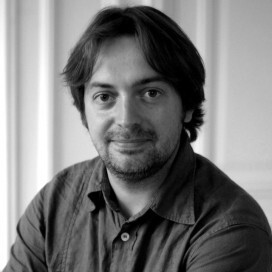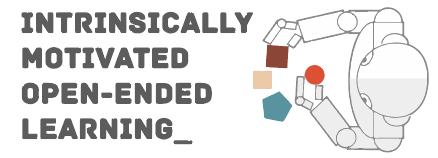 |
| Pierre-yves Oudeyer |
| speaker |
Bio
Pierre-yves Oudeyer is a research director (DR1) at Inria, heading the Flowers team at Inria Bordeaux Sud-Ouest and Univ. Bordeaux (see PhD students). He was also a research visitor at Microsoft Research Montreal (2021-22), and permanent researcher in Sony Computer Science Laboratory for 8 years (1999-2007).
He studies lifelong autonomous learning, and the self-organization of behavioural, cognitive and language structures, at the frontiers of artificial intelligence and cognitive sciences. He also use machines as tools to understand better how children learn and develop, studying how one can build machines that learn autonomously like children, as well as integrate within human cultures, within the new field of developmental artificial intelligence.
He works on applications in education, aiming to use AI techniques as tools in the service of humans, fostering learning, curiosity and creativity (e.g. our algorithms are used in Adaptiv’Maths). He also does outreach for democratizing access and understanding of AI, in diverse contexts ranging from schools to artistic projects. These projects led to several spin-off from the team, e.g. start-ups or NGOs.
He collaborates with many academic labs (e.g. Sorbonne-Université, MILA, Inserm) and industry (e.g. HuggingFace, Microsoft Research, evidenceB, Ubisoft, Poïetis, OnePoint).
Google scholar page • Personal webpage
Talk
This presentation will review various strands of research studying mechanisms enabling open-ended development in humans and machines. I will focus on autotelic learning (= learning by inventing and sampling one’s own goals) and on the role of language and culture to guide creative exploration. I will describe recent work using large language models for autotelic exploration. Then, I will describe two kinds of applications of these approaches: educational technologies and assisted scientific discovery.
